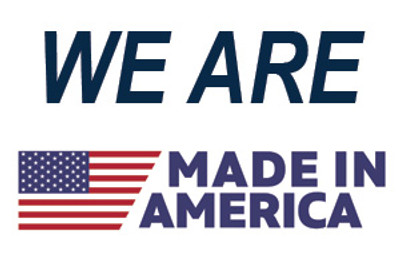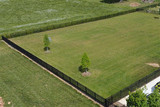Ensuring Authenticity: Verifying 'Made in the USA' Credentials for Online Fence Suppliers
In recent years, the "Made in the USA" label has become increasingly significant for consumers looking to support domestic manufacturing, ensure high-quality products, and promote local economies. This trend extends to the fencing industry, where buyers often prioritize American-made materials for their durability and craftsmanship. However, with the rise of online shopping, verifying the authenticity of these claims can be challenging. This blog post provides practical steps to help you verify "Made in the USA" credentials for online fence suppliers.
Why 'Made in the USA' Matters
- Quality Assurance:
- American-made products are often associated with higher quality standards.
- Domestic manufacturing typically follows stricter regulations and quality control processes.
- Economic Support:
- Purchasing American-made products supports local jobs and businesses.
- It contributes to the national economy and helps sustain domestic manufacturing sectors.
- Environmental Standards:
- U.S. manufacturers are required to adhere to stringent environmental regulations.
- This often results in more sustainable and eco-friendly production practices.
Steps to Verify 'Made in the USA' Claims
- Research the Supplier:
- Conduct a thorough background check on the supplier's website.
- Look for information about their manufacturing locations, company history, and sourcing practices.
- Read Customer Reviews:
- Customer reviews can provide insights into the authenticity of "Made in the USA" claims.
- Look for feedback from customers who mention product quality and origin.
- Contact the Supplier Directly:
- Reach out to the supplier and ask for detailed information about their manufacturing process.
- A reputable company should be transparent and willing to provide evidence of their claims.
- Look for Transparency:
- Trustworthy suppliers often share detailed information about their supply chain and production methods.
- Check if they have any third-party audits or certifications that verify their manufacturing practices.
- Verify with Industry Associations:
- Industry associations such as the American Fence Association (AFA) may provide resources or directories of verified American manufacturers.
- These associations can be a reliable source of information and verification.
- Check for Legal Compliance:
- The FTC provides guidelines for products labeled as "Made in USA".
- Ensure the supplier complies with these guidelines, which require that "all or virtually all" of the product is made in the United States.
Red Flags to Watch Out For
- Vague or Misleading Claims:
- Be cautious of suppliers who use vague terms like "assembled in the USA" or "designed in the USA" without clear details about manufacturing.
- These terms can be misleading and may not guarantee that the product is entirely made domestically.
- Lack of Information:
- A legitimate "Made in the USA" claim should be supported by transparent and detailed information.
- If a supplier provides minimal or no information about their manufacturing process, it could be a red flag.
- Too-Good-to-Be-True Prices:
- Products that are significantly cheaper than competitors may indicate lower quality or outsourced manufacturing.
- Compare prices and ensure they align with the costs of domestic production.
- Check the terminology used to describe their manufacturing standards. "Assembled in the USA" or "Made in the USA With Global Materials" is not the same as Made In The USA.
Benefits of Verifying 'Made in the USA' Credentials
- Peace of Mind:
- Knowing that you are purchasing genuinely American-made products provides confidence in their quality and safety.
- It ensures that you are supporting ethical manufacturing practices.
- Supporting Domestic Industries:
- Verifying these credentials helps sustain local businesses and the broader American manufacturing sector.
- It contributes to job creation and economic stability.
- Better Customer Experience:
- Suppliers who are transparent about their manufacturing process are often more reliable and customer-focused.
- This transparency typically translates to better customer service and product support.
Conclusion
In the digital age, ensuring the authenticity of "Made in the USA" claims for online fence suppliers requires due diligence. By following the steps outlined above, you can confidently verify these claims and make informed purchasing decisions. Supporting genuine American-made products not only guarantees quality but also fosters local economies and sustainable practices.
Are you considering buying a fence and want to ensure it's genuinely made in the USA? Feel free to reach out with any questions 704.776.0296
Recent Posts
-
Why Winter Is the Best Time to Order Your Fence
When most people think about installing a new fence, spring and summer usually come to mind. But sav …Jan 31st 2026 -
Experience, Reputation, Customer Service
Here’s why buying from OnlineFenceStore.com is a strong choice for fencing products: Key Advantages …Aug 13th 2025 -
How to Order Fence from OnlineFenceStore.com: A Step-by-Step Guide
How to Order Fence from OnlineFenceStore.com: A Step-by-Step Guide Ordering a fence online has never …Jul 30th 2025







